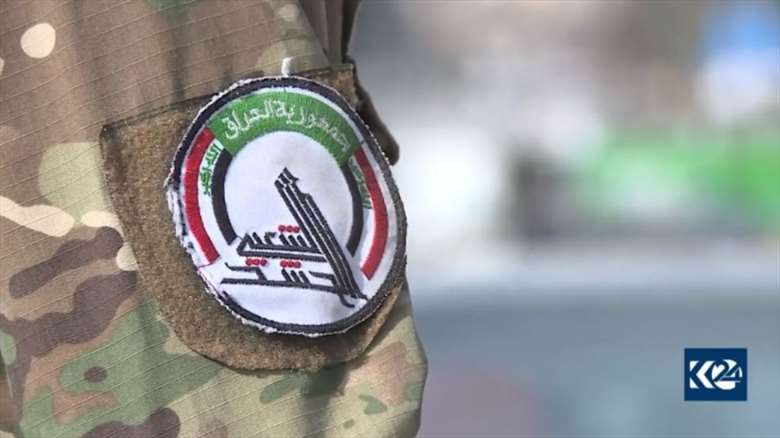Sinjar Agreement: Baghdad sends reinforcements as residents await 'third phase'

ERBIL (Kurdistan 24) – The Federal Government of Iraq on Monday deployed additional security forces to Sinjar (Shingal) as part of the second phase of an agreement to normalize the situation in the Yezidi-majority area where competing armed groups have been vying for influence in recent years.
The deal, between the federal government and the Kurdistan Regional Government (KRG), includes the removal of militias operating under the Popular Mobilization Forces (PMF) and the Kurdistan Workers’ Party (PKK).
Federal police forces recently began to take down flags of the armed factions’ affiliates from government offices and buildings.
The Iraqi government has now sent four brigades of the Federal Police to the area, up to the Syrian borders, as part of the implementation of the agreement.
Read More: Iraqi forces implement first phase of agreement on Sinjar
During the execution of the first phase, the Federal Police did not face any resistance from the factions, including the Ezidkhan Protection Forces, who said they supported the Sinjar Agreement.
The Ezidkhan Protection Forces, who fought against the so-called Islamic State, were among the first groups to have lowered their flags from buildings, according to the deputy official in charge of the forces, Faris Skvan.
“In fact, we welcome the agreement between the Kurdistan Regional Government and the federal government, and we want to bring security and peace to Shingal,” Skvan told Kurdistan 24.
On Oct. 9, the Iraqi government and the KRG announced they had reached an agreement to restore and normalize the situation in the Shingal area, where competing armed groups are active.
Read More: KRG and Baghdad reach administrative, security agreement on Sinjar
Skvan added that Ezidkhan’s forces “support any agreement that is in the interest of Shingal’s residents,” noting that their forces “were not officially asked to lower our flag, but it was agreed upon, and out of respect for the two governments, we lowered our flags.”
A source in the area told Kurdistan 24 that the Shingal Resistance Units (YBS) faction had handed over some of its headquarters to the National Security Agency, by order of Prime Minister Mustafa al-Kadhimi.
There are about 20,000 militants who belong to seven different factions stationed in Shingal. The agreement stipulates that these groups move out of the city by five kilometers. The agreement also prevents any illegal force from entering the city center, and no flag, except for the Iraqi flag, may be raised over the city’s buildings.
Saleh Khalaf, a resident of Shingal, told Kurdistan 24 that although they are isolated from these authorities, residents have endured many grievances and persecutions.
“We support the Iraqi government in the event that it works for the best interest of Shingal, and we are pro-agreement, which guarantees the formation of an administration from the people and for the people,” Khalaf stated.
The residents of Shingal are awaiting the implementation of the third phase after the first and second stages of the agreement were enacted. The first two phases included steps through which a new administration for the city would be formed to maintain security and stability—a request the displaced residents consider crucial before they return home.
Shingal is one of the disputed areas between Erbil and Baghdad. Experts say at least $10 billion is needed to rehabilitate the region’s infrastructure.
Editing by Karzan Sulaivany
